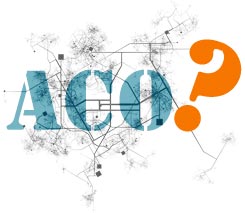More Bad News for Governor’s Regulatory Regime for Payment Reform

A Washington Post article today is sure to influence the debate in the beltway on reforming our health delivery system towards accountable care organizations (ACOs), one can only hope it will reach the leaders of the Commonwealth before they pass the Governor’s “phase II” payment reform legislation. ACOs are the skeleton that Governor Patrick is attempting to fuse his alternative payment methods with.
ACOs are the hot concept in health policy circles, as the Obama Administration is rolling out new regulations to form ACOs for the Medicare population. Many experts believe that as the Medicare delivery system goes, so does the rest of the health care market. So the article brings to light many concerning devolpments that should influence the debate here in Massachusetts.
A key government experiment that set out to lower costs and coordinate care for Medicare patients — now the blueprint for an innovation the Obama administration is trying to move to a national scale — has failed to save a substantial amount of money.
The five-year test enlisted 10 leading health systems around the country and offered financial bonuses if they could save enough by treating older patients more efficiently while providing high-quality care.
In 2010, the final year, just four of the 10 sites, all long-established groups run by doctors, slowed their Medicare spending enough to qualify for a bonus, according to an official evaluation not yet made public. Two sites saved enough to get bonuses in all five years, the evaluation shows, but three did not succeed even once.
The experiment began in 2005 under the George W. Bush administration. It offered “performance payments” to participants that met most of 32 measures of quality — half as many as in the proposed rule — and spent at least 2 percent less for Medicare patients, compared with a group of similar Medicare patients outside the experiment who lived nearby.
Gail Wilensky, who ran Medicare and Medicaid under President George H.W. Bush, said the experiment’s results suggest that the idea may not be ready to go nationwide. She said it is “astounding” that savings were not greater among 10 long-established groups that she said “should have blown it out of the water. .?.?. It’s like, are you kidding me? .?.?. If it was this tough for this group that I had just assumed would be hands-down winners, what does it say for groups that don’t have a long history of coming together?”

